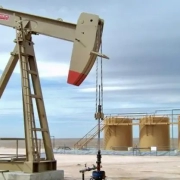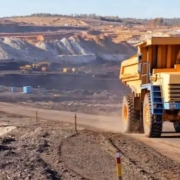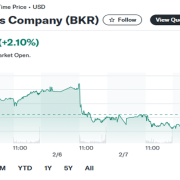The information provided on this page is for general informational purposes only and does not constitute legal, financial, or investment advice. Oil and gas laws, mineral rights regulations, and royalty structures vary significantly by state and jurisdiction. While we strive to provide accurate and up-to-date information, no guarantee is made to that effect, and laws may have changed since publication.
You should consult with a licensed attorney specializing in oil and gas law in your jurisdiction, a qualified financial advisor, or other appropriate professionals before making any decisions based on this material. Neither the author nor the publisher assumes any liability for actions taken in reliance upon the information contained herein.
Mineral rights represent a unique and potentially valuable asset, granting individuals or entities ownership over subsurface minerals like oil, natural gas, metals, and minerals. The value of mineral rights is a subject of interest for landowners, investors, and energy companies alike. In this comprehensive guide, we will explore the concept of mineral rights, how their value is determined, factors influencing that value, and the methods used to assess their worth. Understanding the value of mineral rights is essential for landowners looking to capitalize on their assets and for investors seeking opportunities in the natural resources sector.
Understanding Mineral Rights
Mineral rights, also known as subsurface rights, are property rights that provide ownership over valuable resources found beneath the surface of a property. These resources can include oil, natural gas, coal, metals, and various minerals. Mineral rights are often separated from surface rights, meaning one party owns the surface property, while another party owns the valuable minerals beneath it.
Factors Affecting the Value of Mineral Rights
The value of mineral rights is influenced by various factors, including:
Commodity Prices: The market prices of the resources in question, such as oil and natural gas, have a significant impact on the value of mineral rights.
Location: The geographical location of the minerals, accessibility, and proximity to infrastructure for extraction play a crucial role in determining value.
Reserve Estimates: The size and quality of the mineral reserves present on the property greatly affect its worth.
Geological Potential: The geological assessment of the area can indicate the potential for successful resource extraction.
Operational Costs: The expenses associated with extracting the minerals, including drilling and exploration costs, can affect the overall value.
Market Conditions: Supply and demand dynamics, global geopolitical factors, and market trends can influence the value of mineral rights.
Methods for Determining the Value
Several methods are commonly used to determine the value of mineral rights:
Comparative Sales: Similar mineral rights transactions in the region are analyzed to establish a benchmark for pricing.
Income Approach: This method assesses the projected income from the minerals over time, factoring in costs and future market prices.
Market Value Approach: The value is determined based on the current market conditions and commodity prices.
Reserve Estimates: Geological assessments are used to estimate the quantity and quality of the minerals, which can be converted into a financial value.
Net Revenue Interest (NRI): This approach calculates the investor’s share of the net revenue from mineral production, considering expenses.
Real-World Examples of Mineral Rights Valuation
Real-world examples demonstrate the variability in mineral rights valuation:
Shale Formation Valuation: In shale-rich regions, like the Bakken Formation in North Dakota, mineral rights have been valued in the thousands or millions of dollars per acre due to high oil and gas production.
Mining Rights: Valuation of mining rights may depend on factors like the type and grade of the mineral, location, and accessibility. For example, valuable minerals like gold or silver can command a significant price.
Selling Mineral Rights: When and How
Selling mineral rights can be a strategic financial decision. Timing is crucial, as selling during periods of high commodity prices can yield more substantial returns. The process generally involves:
Assessment: Determining the value of the mineral rights through appraisals, market research, or professional consultations.
Negotiation: Identifying potential buyers, negotiating terms, and accepting an offer.
Legal Process: The legal transfer of mineral rights involves drafting contracts, deeds, and ensuring compliance with all legal requirements.
Tax Implications of Mineral Rights Transactions
Mineral rights transactions may have tax implications. Capital gains taxes may apply when selling mineral rights, and the specific tax rate depends on various factors. It is advisable to consult a tax professional to understand the tax consequences of the transaction and potential strategies for minimizing tax liability.
Risks and Considerations
Selling mineral rights can be a significant financial decision, and it’s essential to consider various risks and factors, including:
Market Volatility: Commodity prices can be subject to significant fluctuations, affecting the overall value of mineral rights.
Resource Depletion: Over time, the value of mineral rights may decrease as the resources are extracted.
Geopolitical Factors: Global events, supply disruptions, and government regulations can impact the industry and mineral rights’ value.
Legal and Contractual Obligations: Reviewing contracts and understanding legal obligations is crucial to avoid potential disputes.
The Role of Professional Appraisals
Professional appraisals conducted by certified mineral rights appraisers can provide a more accurate assessment of the value of mineral rights. These experts consider geological data, commodity prices, reserve estimates, and other relevant factors to arrive at a precise valuation.
Future Trends in Mineral Rights Valuation
The value of mineral rights will continue to be determine by evolving market conditions, technological advancements, and environmental concerns. As the world’s energy landscape shifts toward cleaner and more sustainable sources, mineral rights valuation may be affect by changes in demand for traditional fossil fuels and increased interest in renewable energy resources.
Understanding the value of mineral rights is a multifaceted process. Influenced by various factors such as location, resource quality, market prices, and supply and demand dynamics. It is a crucial consideration for landowners and investors looking to make informed decisions regarding their mineral assets.
As the natural resources industry evolves and adapts to changing market conditions and global concerns. The valuation of mineral rights remains an essential aspect of real estate and investment decision-making. The value of mineral rights can have a significant impact on financial strategies, making it an area where thorough research, professional advice, and informed decisions are of paramount importance.
If you have further questions related to the topic, feel free to reach out to us here.











